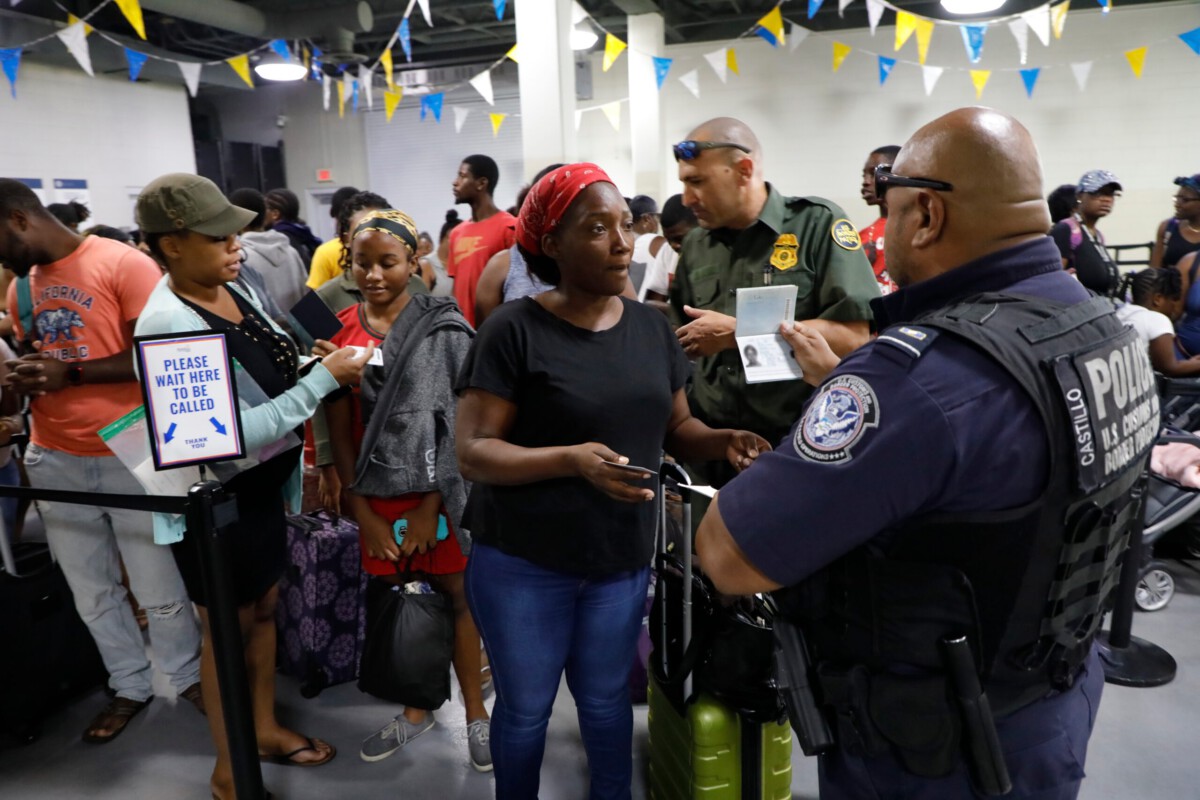Illegal Wildlife Trade and Souvenir Purchases

Many cruise passengers are surprised to learn that the beautiful trinkets they buy at exotic ports may be illegal. Items like coral jewelry, tortoise shell combs, and ivory figurines are often made from protected species. According to the Convention on International Trade in Endangered Species of Wild Fauna and Flora (CITES), these products are strictly prohibited to help protect biodiversity. The World Wildlife Fund reported in 2024 that there was a 15% increase in the confiscation of illegal wildlife products from cruise passengers at major ports around the world. Even if a vendor insists their goods are legal, passengers are still responsible for knowing the rules. Bringing home such souvenirs can lead to serious fines, confiscation, and even criminal charges in some countries. The impact isn’t just legal—these purchases fuel the decline of endangered species. Travelers should always double-check the origins of any souvenirs and avoid anything that looks like it came from wildlife.
Unauthorized Fishing and Marine Life Disturbance

Some cruise passengers love the thrill of fishing in new waters, but doing so without the right permits is a big legal risk. The United Nations Convention on the Law of the Sea (UNCLOS) outlines strict rules about fishing, especially in exclusive economic zones (EEZs) where only certain people can catch fish. In 2023, the International Maritime Organization (IMO) reported several cases where tourists were fined for fishing in protected areas around the Caribbean and Mediterranean. Even just feeding or touching marine animals such as dolphins, turtles, or coral can be illegal and harmful. These actions disturb delicate ecosystems and can disrupt the animals’ natural behaviors. Many protected zones have hefty fines for breaking these rules, and enforcement has been increasing. Passengers need to respect local signs and regulations to avoid unexpected trouble with the law.
Disposing of Waste and Pollution at Sea

Disposing of trash in the ocean is not only harmful to marine life—it’s illegal under the International Convention for the Prevention of Pollution from Ships (MARPOL). Despite clear guidelines, some passengers still toss plastics, cigarettes, or even hazardous materials overboard. In 2024, the International Maritime Organization noted a 10% rise in pollution-related violations connected to cruise ships, with many incidents traced back to passenger behavior. Plastics and chemicals from just one person can harm countless sea creatures and contaminate water for years. Many travelers don’t realize that even small littering can lead to large fines or future bans from cruising. Cruise lines have strict policies and plenty of waste disposal options, but it’s up to each person to follow the rules. Using designated facilities onboard and at ports is essential for both legal compliance and the health of our oceans.
Unauthorized Drone Use in Restricted Airspace

Drones have become a popular way for cruise passengers to capture breathtaking views, but flying them in restricted areas is a serious offense. Many ports and coastlines ban drones to protect wildlife, ensure privacy, and maintain security. The International Civil Aviation Organization (ICAO) logged over 200 incidents in 2023 involving unauthorized drone flights near cruise ports, often resulting in confiscation and fines. Some countries require special permits or outright ban drones in certain regions. Passengers often don’t realize that using a drone in these areas can lead to criminal charges, not just a slap on the wrist. The rules are especially strict near airports, military zones, and nature reserves. Before packing a drone, travelers should research the laws for each port of call and get any necessary permissions. Ignoring these rules can quickly turn an exciting vacation into a legal headache.
Smuggling of Contraband and Prohibited Goods

Cruise terminals are under close watch by customs and border protection agencies, especially with a 20% increase in seizures of contraband reported by the World Customs Organization in 2024. Some passengers try to sneak drugs, counterfeit goods, or even weapons across borders, often without realizing the severity of the offense. These violations break multiple international treaties and domestic laws, resulting in stiff penalties including arrest or imprisonment. Authorities use sophisticated scanning and detection tools to catch offenders right at the port. Even small amounts of illegal substances like certain medications or souvenirs made from endangered species can cause trouble. Passengers should always declare everything they’re carrying and check the latest restrictions before traveling. Getting caught smuggling can mean the end of your vacation and a lifetime ban from traveling to certain countries.
Violating Cultural Heritage and Archaeological Site Protections

Touring ancient ruins or historic sites is a highlight for many cruise passengers, yet some cross the line by taking souvenirs or damaging artifacts. The UNESCO World Heritage Convention strictly forbids removing or altering protected cultural heritage. In 2023, several passengers were fined in places like Italy and Greece for trying to pocket small artifacts or even just scratching their initials into ancient stone. Such actions are not only disrespectful, but they’re illegal and can carry hefty fines or even jail time. Many sites are closely monitored by cameras and guards, and authorities have become increasingly vigilant. Preserving these treasures for future generations means following every rule, no matter how tempting it might be to take a piece of history home. It’s important for travelers to remember that even seemingly harmless actions can have major consequences.
Ignoring Customs and Immigration Procedures

Customs and immigration checks can feel like a hassle, but skipping steps or providing false information is a legal risk that’s just not worth it. In 2024, the International Air Transport Association (IATA) reported a 12% rise in customs violations among cruise travelers. Some passengers forget to declare souvenirs or food items, while others accidentally overstay their visas or wander into restricted port zones. These infractions can result in fines, deportation, or future travel bans. The rules can change quickly from one country to the next, so it’s essential to pay close attention to announcements and instructions from cruise staff. Double-checking visa requirements and declaring all goods honestly are simple steps that can save a lot of trouble. Many ports use facial recognition and electronic systems, making it easier than ever for authorities to catch those who try to bend the rules.
Unauthorized Wildlife Interaction and Feeding

It’s tempting to get close to exotic animals on shore excursions, but feeding or touching wildlife is often illegal. The Convention on Migratory Species (CMS) and various national laws are clear: interacting with protected species can harm their health and disrupt their natural behaviors. In 2023, there were several cases in the Galápagos Islands and the Caribbean where passengers were fined for feeding or handling animals like iguanas, sea lions, or sea turtles. These rules protect both the animals and the fragile ecosystems they depend on. Even seemingly harmless actions, like tossing bread to birds or snapping selfies with wild animals, can have negative effects. Cruise operators are now required to brief passengers about these laws and report violations to local authorities. Respecting wildlife from a distance is not just courteous—it’s required by law.
Use of Illegal Substances and Public Intoxication

Alcohol flows freely on many cruise ships, but using illegal drugs or causing disturbances while intoxicated is a major legal risk. The United Nations Office on Drugs and Crime (UNODC) reported a 7% increase in drug-related incidents on cruise ships in 2024. Even if some substances are legal in one port, they may be strictly banned in another, or on the ship itself depending on its flag state. Passengers caught with illegal substances face arrest and prosecution, sometimes under the harshest applicable laws. Public intoxication that leads to fights, vandalism, or accidents can also result in fines or being removed from the ship at the next port. Cruise companies have zero tolerance for these behaviors and often cooperate closely with local authorities. Staying within the law keeps everyone safe and helps avoid nightmarish consequences.
Unauthorized Photography and Privacy Violations

Taking photos is a favorite pastime for many cruise passengers, but snapping pictures in the wrong place can lead to legal trouble. Some ports, especially in places like Singapore and Dubai, have strict rules about photography for national security, privacy, or cultural reasons. In 2023, several passengers were reprimanded or fined for taking photos in restricted areas like military zones, government buildings, or private property. These restrictions are often clearly posted, but sometimes they’re easy to miss in the excitement of a new place. Ignoring them can lead to cameras being confiscated, fines, or even criminal charges. It’s always best to ask permission before photographing people or sensitive locations and to heed all posted signs. Respecting privacy and security rules is just as important abroad as it is at home.




